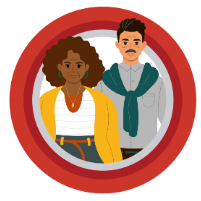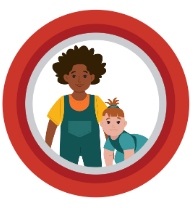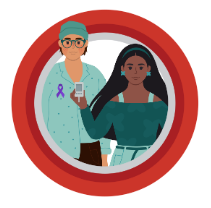The Food Safety Program ensures UW dining facilities meet the highest standards in food safety, and protects the public from foodborne illness.
Environmental Health & Safety (EH&S) oversees food-related activities at all UW locations, including the UW Medical Center, Harborview Medical Center, UW Bothell and UW Tacoma through a comprehensive food safety program. This includes permanent food establishments and temporary food establishments at events.
Permanent food establishments
We issue permits and regularly inspect all UW permanent food facilities, restaurants, stores, cafeterias, mobile food facilities, and catering services to ensure they maintain the standards of safe food handling and cleanliness set forth in the Washington State Retail Food Code.
Food service at events
Organizers of temporary events are responsible for ensuring their food vendors are aware of our requirements.
Please visit the Food Permits for Events page for more information on obtaining permits for your special events.
We evaluate food establishments by conducting one to three inspections annually, depending the complexity of the establishment’s menu. As needed, we conduct follow-up re-inspections to address issues found in the initial inspection. Following each inspection, we review the results with the food establishment’s management and provide guidance for making corrections and improvements.
Our role as inspectors is not simply to identify problems and suggest corrections. We collaborate with the University’s food service providers to implement food-safety best practices and improve operating efficiency.
All food served to the public on University property in both permanent and temporary food establishments must meet the following criteria:
- Food must be prepared in an approved kitchen facility in compliance with local health department regulations.
- Home-prepared food is not allowed.
- Food must be prepared by persons with valid food worker cards.
- Food must be prepared, transported, stored and served in a manner that protects food from contamination and temperature fluctuation that would allow microbial growth.
- Bare-hand contact with ready-to-eat food is prohibited.
Each food-preparation area must provide the following:
- Hand-washing facility
- Sanitizer solution
- Food thermometer
- Leak-proof garbage containers
- Restrooms for food workers
- Wastewater disposal
- Protective equipment
Transporting food:
- Hot food must be transported and held at or above 135°F. Cold food must be transported and held below 41°F.
- Food must be protected from contamination during processing, transit and while on display.
If you believe you became sick from eating at a University food establishment, please submit an online Foodborne Illness Report/Complaint form. We will follow up within 24 hours.
If you witness possible unsafe food handling practices or unclean conditions at a University food establishment or temporary food service event, please contact us by phone or email.
All reports to EH&S are kept confidential.
The Washington State Department of Health, along with the U.S. Department of Agriculture (USDA) and U.S. Food and Drug Administration (FDA) are regulatory agencies that can issue Food Recalls and Safety Alerts for food products.
- Frozen waffle and pancake products recalled - October 2024
- Ready-to-eat meat and poultry products recalled - October 2024
- Hepatitis A outbreak associated with frozen organic strawberries - June 9, 2023
- Salmonella outbreak likely linked to raw cookie dough - May 23, 2023
The Washington State Department of Health Food Recalls and Safety Alerts webpage narrows the list of recalls/alerts to products that may have been distributed in Washington state/purchased by Washington state residents and which have been recalled during the previous 12 months. You can identify a recalled product by matching details of product name, brand, UPC or product code, and product weight or size with the recall notice details. If your product details don't match the recall notice details then there is no need to be concerned or to take action.
Check the Washington DOH Food Recalls and Safety Alerts webpage to help you verify that your inventory does not contain any of the recalled items. If you find a recalled product in your inventory, dispose of the product following the instructions provided in the recall notice.
Recalls can be precautionary and voluntarily made by companies or required by regulatory agencies. Some of the most common reasons foods are recalled include:
- Testing of the product finds contaminants that could be harmful if eaten
- Disease outbreak investigation traces the illnesses to a particular food
- Product was not properly made according to food processing laws
- Contaminated food ingredient used in many products which leads to multiple recalls
- Product mislabeled, mispackaged, and/or contains an undeclared allergen.
Once a reasonably expected amount of the affected product has been recovered or disposed of in accordance with the recall strategy, a recall will be terminated by the regulatory agency.
EH&S Public Health team communicates directly with food service establishment managers across UW locations to share recall/safety alert information in a timely manner.
If you have questions about recalled products or safety alerts:
- Contact the company who issued the recall/alert. Company information is often listed on the recall/alert news release posted on the FDA or USDA website.
- FDA Food Safety: 888.723.3366
- USDA Food Safety (for meat and poultry products): 888.674.6854
The Fire in a Food Establishment Focus Sheet can help University retail food establishments protect workers, customers, and the facility from heat, smoke, fumes, chemical, and/or water damage hazards, and assist with reopening after a fire.
The Power Outages in Food Establishments Focus Sheet can help University retail food establishments protect customers from foodborne illness and minimize inventory loss during power outages.
Dos and don'ts of safe food handling
This training video helps UW food workers keep our campus safe and healthy, and prevents the spread of foodborne illness. Food managers, student and classified employees at campus dining locations, as well as anyone who cooks or handles food (that’s you!), can benefit from these tips.
Learn about safe food handling
This video includes sound.
Factors that increase your risk for food poisoning
Anyone can get food poisoning, but certain groups of people are more likely to get very sick from food poisoning. If you have one of these factors, your body may not be able to fight germs and sickness as effectively.
Visit the Centers for Disease Control and Prevention's Food Safety webpage for more information including a guide to safer food choices for higher risk individuals.
As people age, their immune systems and organs don’t recognize and get rid of harmful germs as well as they once did, which increases the chance they’ll get sick from food poisoning.

Young children’s immune systems are still developing, so their body’s ability to fight germs and sickness isn’t as strong. Food poisoning can be particularly dangerous for them because illness can lead to diarrhea and dehydration.

Having a weakened immune system may make it harder to fight germs and sickness effectively. Weakened immune systems may be due to diabetes, liver disease, kidney disease, alcoholism, HIV, autoimmune disorders such as lupus, or receiving chemotherapy or radiation therapy.

If you are pregnant, you are more likely than other people to get sick from certain germs.

Services available
EH&S provides the following services:
- Food safety and sanitation inspections of food establishments, including food vendors at intercollegiate athletic events
- Temporary food establishment permits for public events on campus
- Regulatory compliance plan review, interpretation and recommendations for new and remodeled food service establishments, and pre-opening inspections
- Food-related complaint investigation and follow-up
EH&S conducts more than 500 food service inspections each year, including the medical centers, athletic event concession stands, day care centers and restaurants across the three campuses, keeping University staff, faculty, students, patients and visitors safe from foodborne illnesses.
Food Establishment Plan Review
EH&S conducts food establishment plan reviews to ensure that the establishment meets state and federal regulations. All plans for new and remodeled food service establishments must be submitted to EH&S for review and approval. This applies to leased facilities, major equipment alterations, and mobile units, such as espresso carts.
Please also visit our Facilities Projects Support page for more information.
Frequently asked questions
The EH&S Environmental Public Health Program inspects all temporary and permanent food service establishments on UW property, including restaurants, cafeterias, food stores, coffee shops, food trucks, concessions at athletic events, and catering kitchens.
We use a risk-based inspection system to inspect one to three times per year, depending on the complexity of food preparation and history of compliance.
The standards for all food establishments in Washington are set by the Washington State Retail Food Code and we ensure all temporary and permanent food establishments on UW property comply with the law.
Refer to the Food Safety Program Manual for more information.
University retail food establishments refer to the Power Outages in Food Establishments Focus Sheet to help protect customers from foodborne illness and minimize inventory loss during power outages.
Refer to the Safe Internal Cooking Temperatures Poster when cooking or reheating food to the correct minimum internal temperature to ensure harmful pathogens are reduced to a safe level.
Food establishments are required to regularly clean and sanitize work surfaces during operations.
Review the Sanitizing Food Contact Surfaces Poster for more information.
More Information
Washington Administrative Code WAC 246-215
Washington State Department of Health Washington State Retail Food Code
Incident reporting
UW personnel are required to submit an incident report to Environmental Health & Safety for any work-related event that results in an injury, illness, exposure to hazardous materials, or fire, regardless of the work location.
UW personnel are highly encouraged to submit work-related near-miss events. Visit the Incident Reporting page for more information.